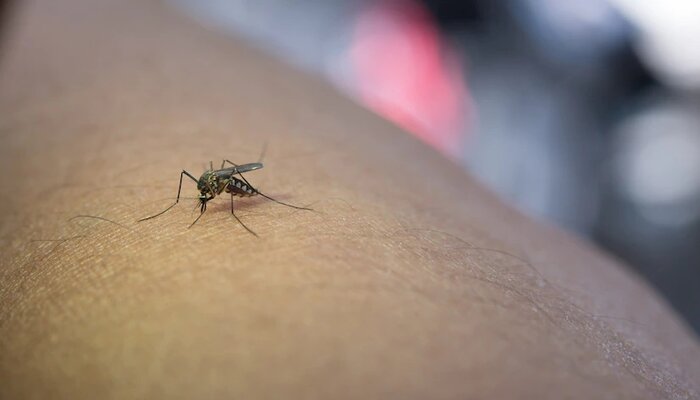SOLOPOS.COM – Illustration of being bitten by a mosquito. (Freepik.com)
–
Solopos.com, ONLY-News often circulates on social media HIV and AIDS which can be transmitted through mosquito bites. This rumor has been around for some time and not a few believe it.
Those who believe this opinion say, when a mosquito bites an infected person, HIV or AIDS, then part of the virus is carried by mosquitoes. Well, this virus is said to be able to spread if the mosquito bites another person. However, is this really the case? Check out the review in healthy info this time.
PromotionSupport for SMEs Backed by BUMN Go online, Tokopedia registers 2,000 NIBs
Quoted from Wednesday’s Kominfo page (14/9/2022), news has circulated on social media that the HIV virus can be transmitted by mosquito bites. In fact, after being tracked down, the HIV virus is not caused by mosquito bites.
Read also: Careful! Condoms can leak, this is a possible cause
“The mosquito is not a good reservoir for the virus, so it won’t be able to thrive there. Gonna die. Even if it bites someone else, it will not pass it on, “said on Wednesday the general chair of the Indonesian Sexually Transmitted Infections Study Group (KSIMSI), Dr Hanny Nilasari SpKK (K), quoted by the website of the Ministry of Communication and information.
Meanwhile, quoted by halodoc.com As of Wednesday, there is so far no medical evidence that HIV can be transmitted through mosquito bites. In fact, mosquito bites can transmit various diseases, such as dengue fever, malaria or chikungunya, but not HIV or AIDS.
According to experts, insects such as mosquitoes do not “inject” the blood of people or animals they have previously bitten. Furthermore, there are some experts who claim that the HIV virus may be in the body of mosquitoes. However, this virus is vulnerable, which means it can only survive for a short time.
Read also: 8 gay men in Wonogiri infected with HIV during the first half of 2022
In conclusion, the transmission of HIV or AIDS through mosquito bites is just a myth.
Until now, sexual intercourse has always been accused of being a frequent occurrence of HIV transmission. In fact, in some cases the transmission of HIV can also occur due to oral sex, if there are open wounds in the patient’s mouth.
Not transmitted through mosquito bites, here are some of the HIV transmissions to watch out for:
1. Through blood transfusion
According to WHO experts, the spread of HIV can also occur through the exchange of body fluids from an infected person. Well, one of the bodily fluids in question is blood. Remember, blood is a transmission medium for the HIV virus. Therefore, this virus can be transmitted when a person receives a blood donation from a person with HIV.
2. Pregnancy or breast milk
People with HIV who are pregnant or breastfeeding need to be very vigilant. Because according to experts from the National Institutes of Health – MedlinePlus, pregnant women can spread the HIV virus to their fetuses through the bloodstream.
Read also: Kissing can transmit HIV, here’s the explanation
Not only that, HIV transmission can also occur through breast milk given to your baby. Therefore, women are strongly advised to get tested for HIV, both before and during pregnancy.
3. Sharing of syringes
Not transmitted through mosquito bites, HIV can be transmitted through sharing needles with people with HIV. For example, using a syringe when using drugs, psychotropics and addictive substances (drugs).
Read also: Hundreds of residents in the Salatiga detention center are being tested for HIV / AIDS
Not only that, people who inject themselves with drugs, steroids or hormones can also be infected with HIV if they use syringes interchangeably. How come? This is because there is still some blood attached to the previous user’s syringe that was infected with HIV.
4. Organ transplant
Although the goal is to save a person’s life, organ transplantation is very risky with HIV transmission. Because, recipients of donors who obtain organs from donors who are already infected with the HIV virus, can become infected with the virus through the exchange of fluids in these organs.
–


